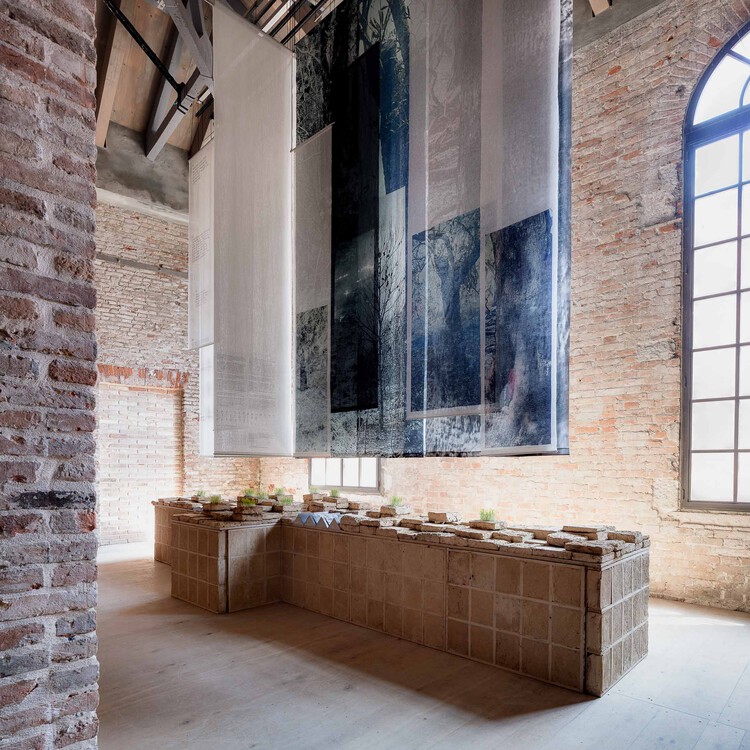
At the 19th International Architecture Exhibition of La Biennale di Venezia in 2025, the Lebanese Pavilion, curated by the Collective for Architecture Lebanon (CAL), presents "The Land Remembers," an exploration of ecocide and environmental healing. Selected by Lebanon's Ministry of Culture and the Lebanese Federation of Engineers, CAL is a non-profit organization co-founded in 2019 by Shereen Doummar, Edouard Souhaid, Elias Tamer, and Lynn Chamoun. Their curatorial vision aims to transform the pavilion into a fictional institution, the Ministry of Land Intelligens, dedicated to confronting environmental devastation and proposing strategies for ecological restoration.
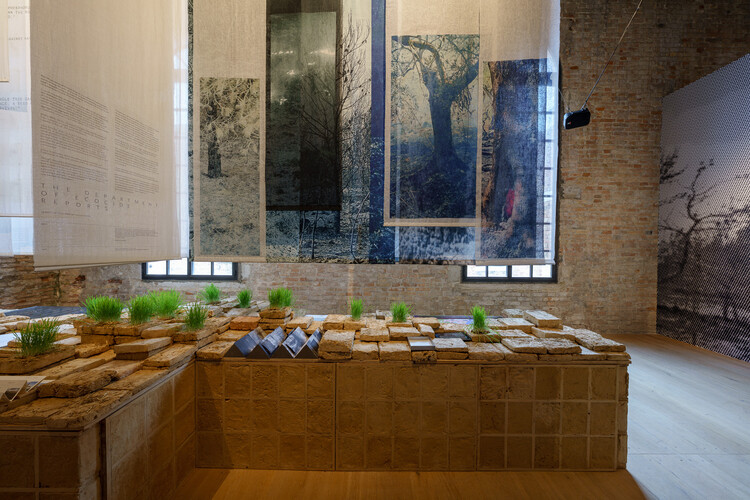
"The Land Remembers" is designed as a space for activism. The pavilion argues that architecture must begin with the land, emphasizing that before designing the built environment, architects must recognize their role in protecting and regenerating nature. Lebanon's history of war, unchecked urbanization, and political instability has pushed its landscapes to the brink, with soil and water poisoned by heavy metals, incendiary weapons, and the deliberate destruction of agricultural fields.
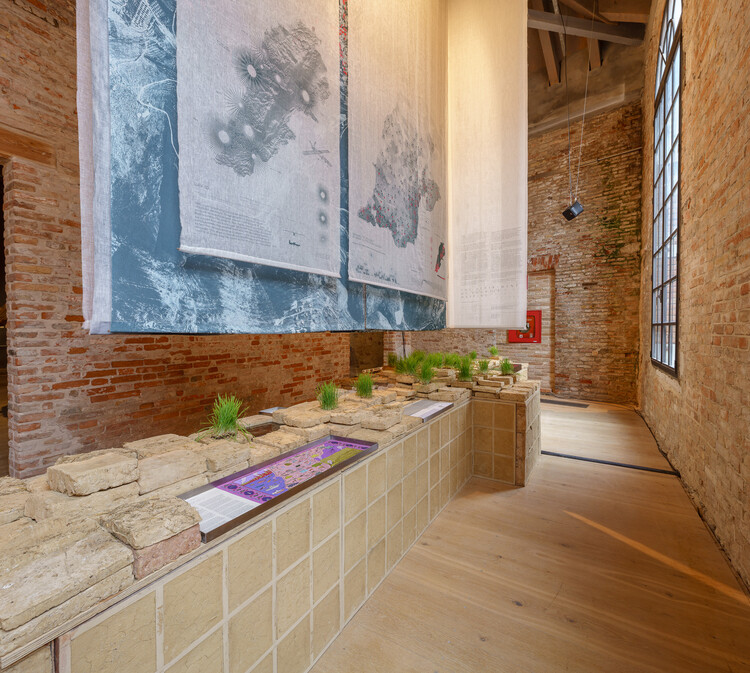
"The Ministry of Land Intelligens" is structured into four departments, each addressing a different facet of environmental loss and recovery. The Department of Ecocide Reports builds an evolving archive of destruction, using forensic documentation to bear witness to environmental crimes. The Department of Counter-Mapping challenges dominant cartographies by recovering erased landscapes and redefining narratives of the land. The Department of Endemic Species focuses on safeguarding biodiversity through seed preservation and ecological stewardship, ensuring that native species endure and adapt. Finally, the Department of Strategic Healing develops restoration strategies rooted in indigenous knowledge, reactivating natural processes to rehabilitate damaged ecosystems.
Related Article
2025 Venice Architecture Biennale: Over 750 Participants Researching How Architecture Adapts to the Future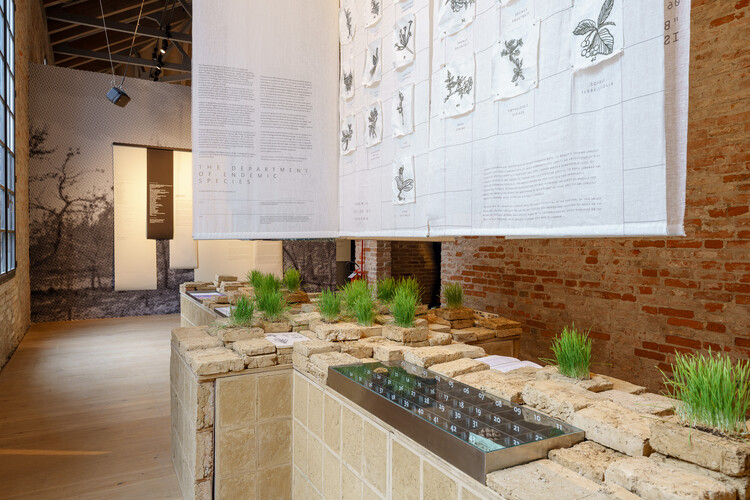
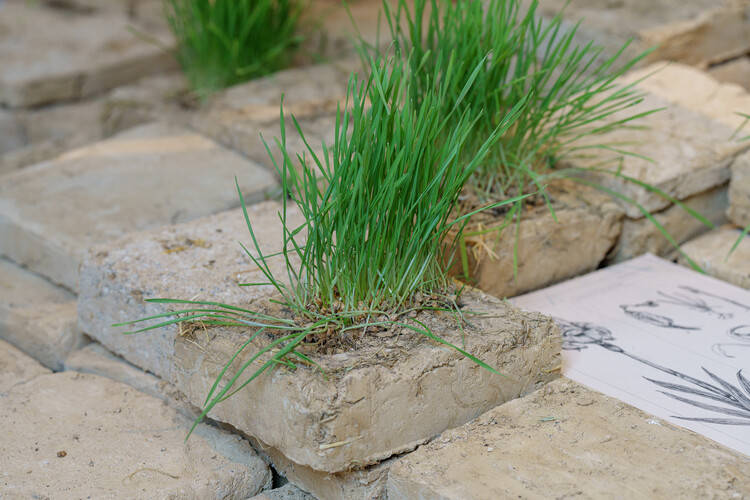
Symbolizing the resilience of Lebanon's natural environment, the pavilion itself is constructed from compacted soil bricks embedded with wheat seeds, one of the oldest domesticated crops, first cultivated in the region. These bricks, arranged in a cross to delineate the four departments, will gradually sprout over six months, demonstrating nature's inherent ability to regenerate. This act of renewal anchors Lebanon's historical significance as a cradle of biodiversity while calling attention to the ongoing threats against its land.
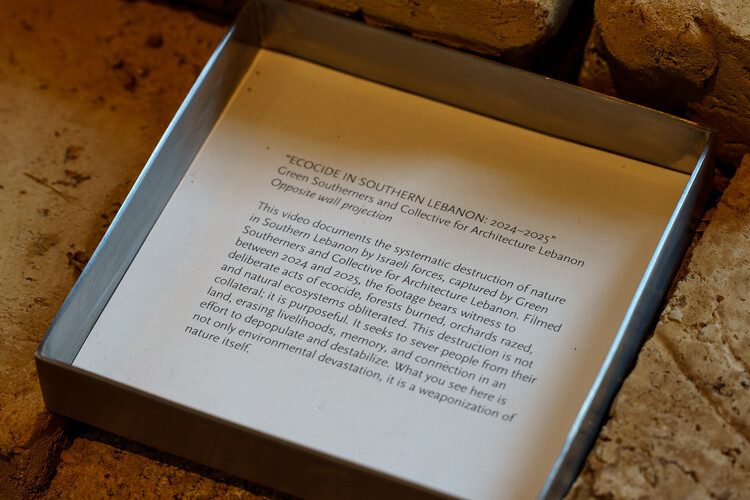
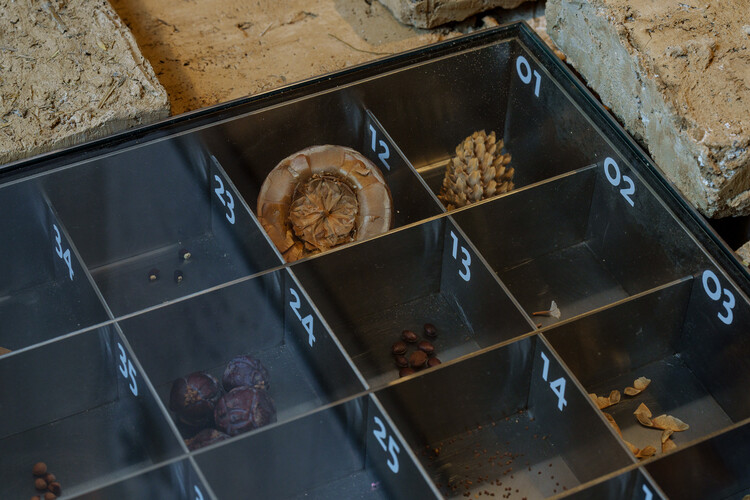
Visitors are invited to engage with the ministry's agenda by signing a petition, transforming their experience from passive observation to active participation. The pavilion extends its mission beyond Venice, evolving into a long-term platform for advocacy. Accompanied by a publication that serves as a living document, "The Land Remembers" builds a network of knowledge, research, and strategies for healing. In fact, the pavilion suggests that Lebanon's story is not an isolated one, but a reflection of a broader global struggle. This pavilion is designed a reminder that the earth holds memory, resilience, and potential, but only through urgent action can its future be secured.
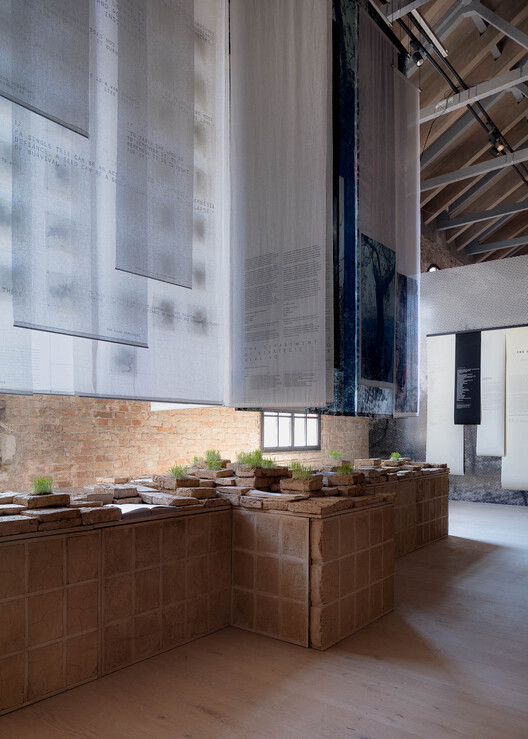
The 2025 Venice Architecture Biennale opened on May 10 and will run until November 23. This year's edition brings together over 300 contributions from more than 750 participants across generations and disciplines, and hosts a total of 65 national pavilions. Each country presents its exhibitions tackling urgent global issues through architecture. The German Pavilion explores how urban environments can adapt to rising temperatures, testing the resilience of cities in a warming world. Meanwhile, the Uzbekistan Pavilion focuses on ecological and cultural resilience, examining architecture's role in restoring and sustaining the country's landscapes amid environmental challenges.
Editor's note: This article was originally published on March 19, 2025, and updated on June 3, 2025, to include photographs of the exhibit.
We invite you to check out ArchDaily's comprehensive coverage of the 2025 Venice Biennale.




























